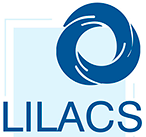Chromosome 9 aberrations diagnosed at a pediatric hospital in Tabasco, Mexico
DOI:
https://doi.org/10.19136/hs.a23n1.5637Abstract
Objective. To determine the frequency of patients diagnosed with chromosome 9 disorders in a pediatric hospital between the years 2012 and 2022.
Materials and methods. A cross-sectional and descriptive study was performed in 2932 patients who attended the genetics consultation of a pediatric hospital in Tabasco, Mexico, from January 2012 to December 2022, based on the results of chromosomal diagnosis in peripheral blood.
Results. Chromosomal alterations were present in 14.76% (433/2932). The most frequently involved chromosome was number 21 in 83.37% (361/433), followed by sex chromosome X with 5.31% (23/433) and chromosome 9 with 3.69% (16/433). Regarding chromosome 9, 50% (8/16) corresponded to morphological variants (9qh+), followed by pericentric inversion in 3 of the cases (18.75%), deletion in 2 (12.5%), insertion in 1 (6.6%), ring in 1 (6.6%), and a shunt (6.6%).
Conclusion. The cytogenetic results found, according to the patients' reasons for referral, suggest the performance of peripheral blood karyotyping as a useful tool in the diagnosis of diseases with genetic suspicion.
Key words: Chromosomal inversion; Karyotype; Infertility.
Downloads
Downloads
Published
Issue
Section
License
Copyright (c) 2023 Horizonte Sanitario

This work is licensed under a Creative Commons Attribution-NonCommercial-ShareAlike 4.0 International License.





























